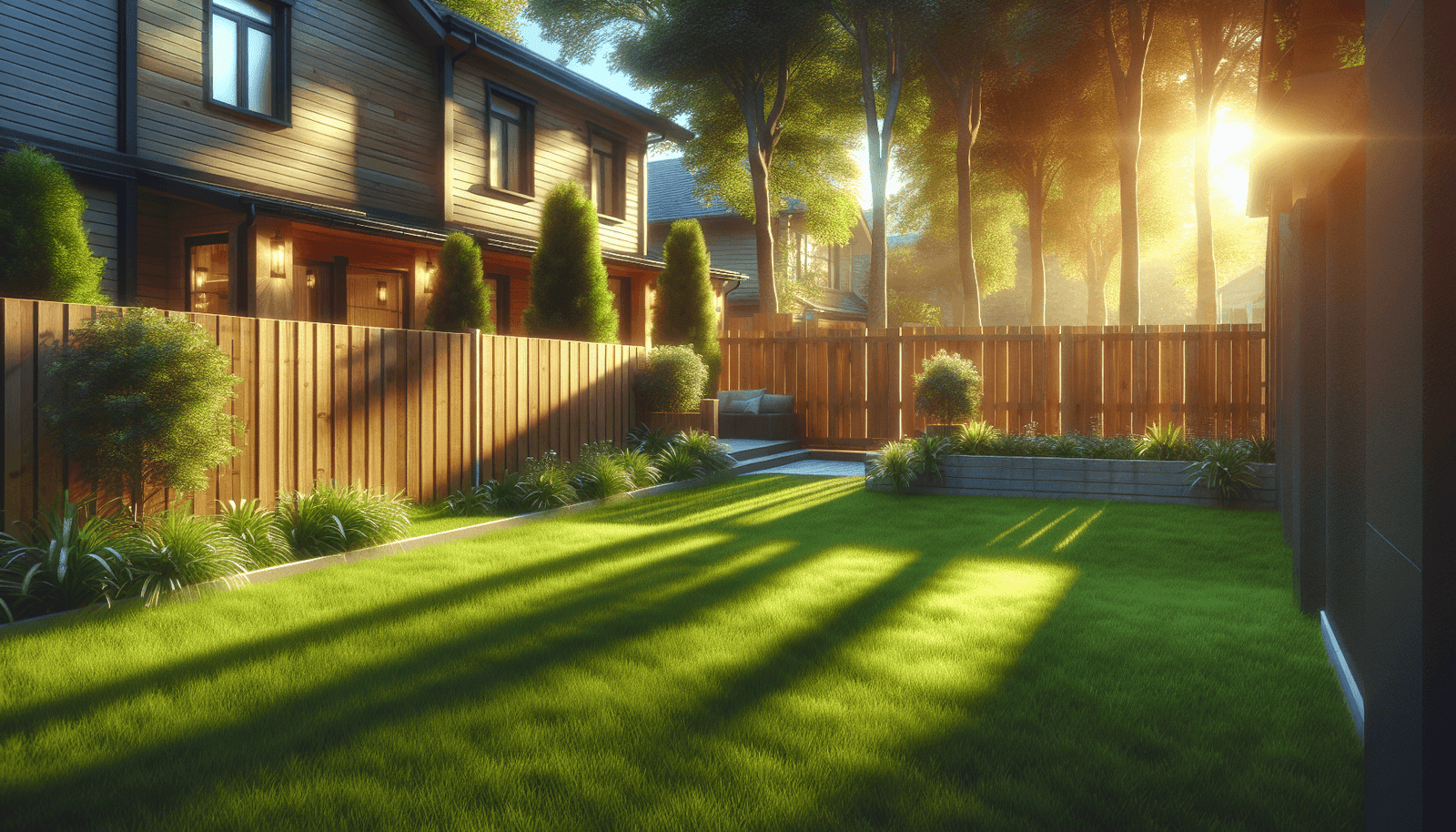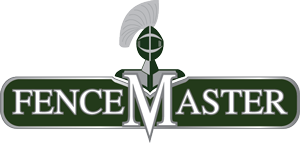
For homeowners in Houston, evaluating the financial aspects of a fencing project is a key step toward enhancing both security and curb appeal. Typically, fence prices can fluctuate based on various factors, such as the types of materials selected and the size of the property.
For example, residential fences crafted from wood generally fall within a price range of $15 to $30 per linear foot, while vinyl alternatives may cost anywhere from $20 to $40 per linear foot.
These installation charges can vary due to local market demand and the intricacy of the setup.
To achieve an accurate cost assessment, obtaining multiple estimates from contractors in the area is highly recommended.
Click here to learn more about: residential.html
Understanding Fence Pricing And Material Options
After considering the financial aspects discussed earlier, it’s important to look at how different materials can impact your choices. Picking the right barrier for your property involves evaluating various options and their costs. The variety in materials, from wooden fences to vinyl enclosures, can greatly affect your labor pricing and overall installation charges.
Wooden fences, while visually attractive, usually require more upkeep compared to other options. This can elevate long-term material costs and repair expenses. On the other hand, chain link gates provide a cost-effective solution, especially for commercial enclosures, because of their low maintenance and durability metrics.
Comprehending these fencing choices helps in making a knowledgeable decision and ensures adherence to your fencing budget and specific requirements. Moreover, additional features like hurricane protection or enhanced visual appeal can impact the overall functionality of your fences. Always take into account the long-term value and quality guarantees related to different materials, as these elements are crucial for the success of your installation projects.
Ultimately, understanding these aspects will allow you to make informed selections that suit your property confines and elevate its security. By balancing various material costs and installation duration, you can achieve a fencing solution that meets your needs.

Typical Charges For Fence Installation Services
Understanding the various costs associated with fence projects helps homeowners make informed choices. The financial requirement for installations can differ greatly, influenced by many factors including chosen materials, needs for durability, and the complexity of the project.
Installation charges range from a few hundred to several thousand dollars. Factors such as the type of fencing materials—whether it’s wrought iron installations or vinyl enclosures—height limits, and length all directly impact the final quote.
Additionally, labor pricing may vary based on geographical location and the difficulty of the setup, making it crucial for homeowners to consider local market conditions when planning their fencing budget. Staying informed about these factors will assist in managing expenses and maximizing the overall investment.
Financial Considerations for Fencing Projects
- Material costs significantly influence overall expenses; wrought iron tends to be pricier than choices like vinyl fencing.
- Installation charges typically span several hundred to thousands of dollars depending on specific project requirements.
- Labor pricing varies geographically, impacting the total cost of the fencing project.
- Height and length of the fence are essential factors affecting the final quote.
Conducting A Comprehensive Cost Assessment For Fencing Projects
Understanding Expenses
Building on the insights from earlier discussions about material options and installation charges, a careful examination of expenses is vital for ensuring the success of your fencing projects. By evaluating aspects such as hurricane protection and labor pricing, homeowners can establish a clearer and more realistic fencing budget.
Choosing Materials Wisely
Selecting the right materials, like stone barriers, not only enhances the property’s visual appeal but also significantly affects overall costs. Factors such as the durability metrics of different materials can guide these decisions, balancing aesthetics with long-term performance and fence upkeep.
Site Preparation and Additional Costs
Additionally, site preparation can play a critical role in determining project expenses. Activities like grading or land clearing contribute to increased financial outlays that should be factored into the total cost assessment. Understanding zoning regulations and permit expenses is crucial to avoid unexpected costs that could derail your budget.
Maximizing Your Investment
By conducting a comprehensive review of these elements, homeowners can establish accurate estimates, enabling informed decisions and ensuring financial viability. Keeping an eye on seasonal promotions or additional features can also enhance the investment, ensuring that the chosen security barriers meet both functional and budgetary needs.
Developing A Budget Tailored To Your Fencing Needs
Understanding your financial situation is critical when planning a budget for your fencing project. Identifying your specific goals will help you decide on materials and styles, which will significantly affect your overall costs.
Understanding Fencing Types and Costs
Familiarity with different fencing types can clarify potential service charges. For instance, while wooden fences often have higher repair expenses over the years, options like aluminum fencing offer lower maintenance costs and are easier to maintain. Highlighting durability metrics, weather resilience, and the long-term value of various materials is vital for making the right choices.
Obtaining Project Quotations
Getting project quotations from local fencing contractors will help you understand market price trends and facilitate better financial planning. Evaluating the warranty on parts and customer feedback also plays a crucial role in assessing quality guarantees and ensuring your investment contributes to satisfactory home upgrades.
| Fencing Type | Maintenance Cost | Repair Expenses | Material Longevity |
|---|---|---|---|
| Wood Fencing | Higher | Higher | 10-15 years |
| Aluminum Fencing | Lower | Lower | 25-30 years |
| Vinyl Fencing | Moderate | Lower | 20-30 years |
A Comparative Analysis Of Residential Fencing Options And Their Associated Costs
Building from the importance of creating a tailored budget for your fencing needs, assessing the various types of residential fences is essential for enhancing both the aesthetic and protective aspects of your property. A diverse array of materials is available, ranging from traditional wooden fences to modern vinyl enclosures, each offering unique advantages and costs that can drastically impact your overall project.
For those interested in DIY fence projects, the material selection can greatly influence not only the initial installation charges but also the ongoing fence upkeep that will be necessary. Furthermore, understanding the balance between visual appeal and functional durability is key in making a decision that complements your property confines.
This analysis looks deeper into how different fencing types can affect your fencing budget, addressing factors such as installation difficulty and the implications of selecting durable materials. As you consider how to allocate funds for these home upgrades, be sure to evaluate the long-term value and repair expenses associated with each fencing choice.
By examining these costs alongside insights into commercial agreements and contractor estimates for DIY projects, homeowners can make informed decisions that align with their vision for security barriers. This comparative study not only underscores the importance of material costs and installation charges but also highlights the impact of zoning regulations and permit expenses that may arise during your project.
Insights Into Commercial Enclosures And Their Pricing Structures
After examining the different types of residential fences and their influencing factors, a closer look at commercial enclosures shows their important role in defining property confines while enhancing visual appeal. Various options such as chain link, wrought iron, and vinyl are available to meet distinct business needs, offering a blend of functionality and aesthetics.
Cost Factors
The costs linked to these enclosures can change based on factors like material type, installation duration, and site-specific requirements. For instance, chain link fencing generally has a lower price point but may require extra upkeep to maintain its appearance over time, impacting the overall fencing budget.
Contractor Quotes
Licensed contractors typically provide comprehensive project quotations that cover labor pricing, material costs, and required permits to comply with zoning regulations. This clarity is essential for businesses as they evaluate how initial expenses connect to long-term value, especially concerning fence upkeep and maintenance.
Enclosure Types
- Several enclosure types assist in maintaining property boundaries while enhancing visual appeal.
- Common materials include chain link, wrought iron, and vinyl, with each catering to different business needs.
- Costs can fluctuate based on material choice, installation duration, and site-specific factors.
- Licensed contractors offer detailed quotes that incorporate labor, materials, and necessary permits for zoning compliance.
Key Factors Influencing Labor Costs In Fence Installations
Worker Expertise
Building on the insights regarding commercial enclosures and their pricing structures, understanding the labor costs involved in fence installations is crucial for effective budgeting. Various elements affect installation charges, with worker expertise being a primary factor; skilled professionals tend to execute projects efficiently, reducing the likelihood of costly mistakes.
Complexity of Installation
The complexity of the installation can significantly impact labor pricing. For example, projects that involve uneven landscape coherence or elaborate designs may prolong the installation duration, resulting in higher overall expenses. Consideration of the specific requirements of factors like wooden fences or chain link gates is essential.
Custom Features and Skills
Custom features like ornamental barriers or unique posts and components require specialized skills, which can also raise the cost assessment. Additionally, paying attention to potential permit expenses related to zoning regulations is vital, as these can influence the total financial outlay.
Planning for Costs
By considering these components, homeowners can enhance their fencing choices while ensuring they meet both aesthetic desires and budgetary constraints. Effective planning that incorporates the projected labor costs can help achieve a successful fence installation tailored to your specific needs, such as choosing the right materials and understanding warranty on parts related to your project.
Detailed Evaluation Of Material Costs For Various Types Of Fences
Continuing from our discussion on the cost factors and labor related to fence installations, it is crucial to look at the expenses linked to various fencing materials. Knowing these material costs aids in making wise choices that meet both aesthetic needs and fencing budget. Wood fencing generally runs from $15 to $30 per linear foot, with prices affected by wood species and treatment options.
Wood Fencing
For instance, treated pine is a more economical option compared to cedar, which offers greater durability metrics and visual appeal.
Chain Link Fencing
Chain link fences are usually priced between $10 and $20 per foot, with factors like gauge and height influencing the final costs. Adding privacy slats or color coating may result in increased service charges.
Iron Fencing
The costs for iron and wrought iron fencing can differ widely, starting at about $30 per foot, dependent on design complexity and the material’s weather resilience. These installations often serve as ornamental barriers while ensuring security for residential or commercial properties.
Vinyl Fencing
For those considering vinyl options, buyers should plan to spend between $20 and $40 per foot, while keeping in mind durability, contractor estimates, and longterm value.
Summary of Material Costs
- Wood fencing costs between $15 and $30 per linear foot, influenced by species and treatment.
- Chain link fences range from $10 to $20 per foot, affected by gauge and height.
- Iron and wrought iron fencing starts at around $30 per foot, depending on design and weather resilience.
- Vinyl fencing options require an investment of $20 to $40 per foot, considering durability and other factors.
The Impact Of Warranty On Pricing For Fencing Parts And Services
Linking to the exploration of material costs for various types of fences, it is crucial to highlight how warranties significantly affect the overall budgeting of fencing projects. Homeowners often evaluate the benefits of professional setups against the initial installation charges involved.
This kind of agreement not only offers valuable peace of mind but can also help in reducing long-term repair expenses. For example, those who choose residential installations with a comprehensive warranty may encounter higher price per linear foot, but this often results in considerable savings over time.
Such a view encourages homeowners to invest more upfront, understanding that they are securing reliable service and support. Thus, having a solid warranty instills greater customer trust and satisfaction across the fencing market.
Furthermore, as the assessment of costs continues, emphasizing the selection of dependable local fencing contractors can greatly enhance service quality, leading to better installation outcomes. By choosing contractors who provide warranties on parts and quality guarantees, homeowners can ensure that their fencing projects, such as wooden fences or vinyl enclosures, are well-protected against potential future issues. Overall, understanding how warranties integrate with material costs and service charges can assist in making informed decisions for a successful installation.
Selecting Dependable Local Fencing Contractors For Quality Service
Choosing the right contractor is an essential factor in the success of your fencing project. A dependable contractor ensures not only satisfactory results but also peace of mind during the installation process.
Look for professionals with a proven history of experience and positive customer feedback in your area. This builds trust and can enhance the value of your investment significantly.
When evaluating project quotations, focus on pricing transparency, especially regarding installation charges and any hidden costs that could impact your fencing budget. Understanding the breakdown of fence prices is key to managing overall project expenses.
Warranties on parts are crucial, as they provide longterm value and boost your confidence in the service being provided. Open communication with your contractor is vital, ensuring that expectations, installation duration, and timelines align effectively for both residential and commercial projects.
Selecting local fencing contractors who address concerns about material costs and repair expenses fosters a beneficial working relationship. Their expertise often includes insights into zoning regulations and permit expenses, guiding you through the complexities of your project. Comprehensive research and careful selection will establish a foundation for high-quality fencing that enhances your property’s visual appeal and security.
DIY Vs Hiring A Pro Which Is Best For Fence Installation With Fencemaster Houston
Installation Process StepbyStep Fencemaster Houston Made Easy


